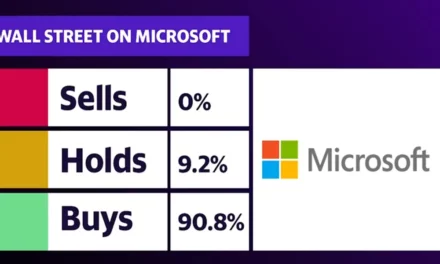Concerns that interest rates will stay high for much longer affected trading in London as the week began on Monday, February 6th. The UK’s blue-chip FTSE 100 dropped by 0.8% despite hitting a record high as trading closed for the previous week. Meanwhile, the domestic-centric FTSE 250 fell by nearly 1% despite hitting an eight-month peak the previous week.
This was a stark contrast to the way the most recent economic data from the United States appeared to give Wall Street a shot in the arm at the start of the trading week.
But Britain wasn’t the only country whose stock market seemed to be in rough waters this week. Across the globe, stock markets faltered at the start of the week while government bond yields went up following the release of the US employment report on Friday, February 3rd.
While the latest news from the US and other nations seemed to stave off the threat of recession, it was also seen as a signal that there is a further need to increase interest rates in the immediate future.
For BlackRock Investment Institute chief investment strategist Vivek Paul, many markets are pricing a number of cuts for 2023 but this move is not likely to work and it is equally unlikely that markets will push through with it. Paul added that there is room for downside, particularly for equities.
BoE: We Need More Rate Hikes
Just last week, the Bank of England (BoE) implemented its tenth consecutive interest rate hike. The BoE also implied that it was gaining momentum in its drive against soaring inflation.
Catherine Mann, the BoE economist who sets the Bank’s interest rates, has announced her support for future rate hikes. Mann also warned that pausing these increases would lead to confusion if it became necessary to raise them yet again.
A Grim Performance
With the exception of the precious metal mining sector which managed to rise by 0.7%, the bulk of business sectors all finished in the red. The British construction industry, in particular, had its worst January in three years as the rising cost of borrowing had an adverse impact on home building over the past several months.
Meanwhile, financial services firm Prudential UK’s exposure to China was more of a hindrance as the China-exposed company dropped by 5% thanks to the escalating geopolitical tensions between the United States and the Asian dragon.
In terms of individual companies, financial services firm Hargreaves Lansdown dropped by 3.3% when Credit Suisse downgraded its shares from “neutral” to “underperforming.”
However, there is a ray of light in the coming week as major companies British Petroleum (BP), pharmaceutical titan AstraZeneca, and consumer goods giant Unilever are all set to announce their corporate earnings for Q4-2022.















